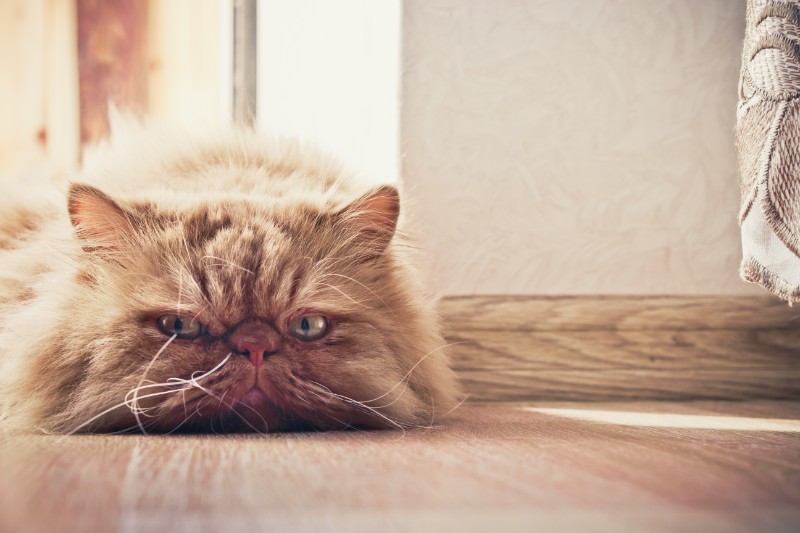
Tried and True: Senior Pet Care

Pets are living longer than ever, thanks to better nutrition, access to top of the line veterinary medical care, and pet parents’ increasing understanding of pet needs and health. And living with a senior pet – whether you adopted them as a brand new puppy or an adult dog – can be very rewarding.
One of the most important things to remember is that age is not a disease! Senior pets (those older than age 7) can live active, healthy lives for years to come. It’s true that with age comes certain conditions, but that’s just a matter of us paying attention to their needs, and making some adjustments along the way. Just how to do this? Arlington Animal Hospital gives you the rundown.
The Aging Process
Depending on your pet’s species, breed, lifestyle and genetics, it’s a good idea to increase regular wellness visits. Cats and dogs both age much faster than humans, which is why we recommend seeing them twice a year after age 7 in order to monitor age related changes. With this approach, and by evaluating their medical history and your observations at home, we can often catch disease in the earlier stages and treat before serious problems arise.
Early Detection of Disease
Speaking of early detection, lab work and other screening tests are an important part of the process. Methods of early detection include bloodwork and urinalysis, parasite screening, dental evaluation, and blood pressure testing. Even when nothing is wrong with your pet, having a baseline of normal values can be invaluable information for comparing to future results.
It’s not uncommon to surprise a pet owner with a diagnosis. Oftentimes, and early diagnosis and treatment means a better outcome for your pet, less expense for you, and less stress for everyone involved.
Some of the age related diseases we can often catch with screening tests are:
- Diabetes
- Cancer
- Hypothyroidism
- Cushing’s disease
- Addison’s disease
- Hyperthyroidism
- Kidney disease
- Heart disease
- Metabolic disease
- Cataracts
- Lumps and bumps
- Hip dysplasia
- Arthritis and/or joint disease
Often, pet owners with good intentions believe their pet is “slowing down” due to old age, but frequently pets are instead suffering with pain or discomfort that can be remedied relatively easily.
Keep An Eye
You’ll want to be vigilant with your senior pet to notice the first signs of lurking problems. Animals (especially cats!) are masters at hiding signs of disease, so if you notice any of the following problems, schedule an appointment right away so we can get to the root of the problem.
- Recurrent vomiting or diarrhea
- Inappetance
- Drinking a lot of water/ urinating a lot
- Incontinence
- Bloody stool
- Drooling
- Bad breath
- Decreased mobility
- Bad breath
- Respiratory problems
- Brittle coat/ hair loss
- Changes in weight
Senior Pet Care
Creature comforts can also help your senior pet feel happy and healthy in their home environment. Small changes might make a big difference to your aging pet. Consider the following ideas:
Snug as a bug – senior pets are more affected by cold and heat than younger pets. Make sure your senior has a warm, soft bed in a room that’s not drafty. In the summer, make sure they have a cool place to relax.
Easy does it – for senior pets with arthritis or mobility issues, giving them easy access to the necessities can make a world of difference. Try placing their bed, food, water and litter box all so they can have access without navigating stairs. Cats may need their litter box entry point evaluated, if they have a hard time jumping up (or in).
Keep it stable – pets who are aging go through some of the same mental challenges as people do. It’s very wise to keep your pet’s regular schedule and routine, and to take time to play with, snuggle, and groom them every day. Their mood and overall well being will be much better with a little more attention from you.
Creative pain management – some of us wouldn’t hesitate to get acupuncture for ourselves if we were feeling poorly, and we can offer this same modality of pain management to pets!
We’re your partner in compassionate senior pet care, so don’t hesitate to give us a call with any questions or concerns. Your team at Arlington Animal Hospital is here to help!
Contact Us!
2301 Columbia Pike #G-1, Arlington, VA 22204
Phone: (703) 920-5300
Fax: (703) 685-8860
Email: info@myarlingtonvet.com
Office Hours
-
Monday
8 a.m. – 8 p.m.
-
Tuesday
8 a.m. – 8 p.m.
-
Wednesday
8 a.m. – 6 p.m.
-
Thursday
8 a.m. – 6 p.m.
-
Friday
8 a.m. – 6 p.m.
-
Saturday
8 a.m. – 2 p.m.
-
Sunday
CLOSED
- Doctors’ hours are by appointment only.



